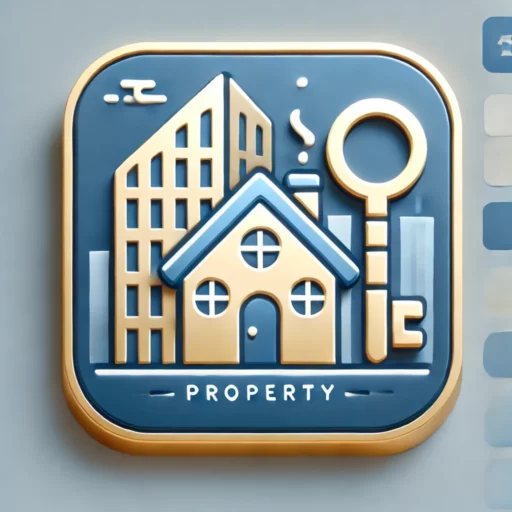Owning and managing rental property can be a rewarding investment. However, it also comes with its own set of challenges, one of the most common being late payments. A late payment from a tenant can disrupt your cash flow, leading to stress and potential financial problems. Knowing how to handle late payments effectively is a critical skill for every property owner. Here are 8 tips for handling late payments on rental property, ensuring that you protect your income while maintaining a professional relationship with your tenants.
1. Establish Clear Payment Terms from the Start
The key to minimizing late payments is setting clear expectations from the very beginning. When new tenants sign the lease, make sure they fully understand the payment due dates, the amount, and the penalties for late payments.
How to Set Payment Terms Effectively
Ensure that the lease agreement is crystal clear on the following:
- Due date: Specify the exact day the rent is due each month. A consistent payment date helps tenants plan their finances better.
- Grace period: Many landlords offer a brief grace period (typically 3 to 5 days) to account for slight delays in processing. Make sure this is mentioned.
- Late fees: Outline the late fee structure. For instance, after the grace period, you may charge a daily fee or a one-time fee.
By setting these expectations upfront, tenants will be less likely to miss payments. This also gives you a solid foundation for enforcing penalties if the payments are delayed.
You can learn more about setting up the right payment terms in rental properties by checking out Rental Property Tips.
2. Send Friendly Payment Reminders
Life happens, and sometimes tenants genuinely forget to make their rent payments on time. A friendly reminder can go a long way in prompting them to pay without creating tension.
Best Practices for Sending Reminders
- Be polite and professional: Send a reminder message a few days before the due date to ensure they’re aware of the upcoming rent.
- Multiple platforms: Consider sending reminders via email, text, and even a phone call for higher visibility.
- Payment methods: Offer convenient payment methods and remind them of the available options, like online payment portals, bank transfers, or checks.
Proactive communication helps foster positive relationships with tenants, reducing the likelihood of recurring late payments. Learn more about handling late payments through friendly reminders by checking out Rental Laws.
3. Enforce Late Fees Consistently
It’s essential to enforce late fees fairly and consistently to prevent tenants from getting into the habit of making late payments. Late fees should be clearly outlined in the lease agreement and enforced without exception.
Why Late Fees Are Important
- Accountability: Late fees encourage tenants to pay on time.
- Covering your costs: If a tenant regularly pays late, the fees can offset any additional time and effort spent managing the situation.
- Fairness: Enforcing the same fee for every tenant ensures that no one feels singled out.
By consistently applying late fees, you reinforce the importance of on-time payment. If you’re not sure about the best practices for enforcing fees, read up on property investment insights at Property Investment.

4. Offer Payment Plans in Special Circumstances
Sometimes, tenants experience temporary financial hardships. Offering a payment plan can allow them to catch up on their payments without facing eviction or damage to their credit.
How to Set Up a Payment Plan
- Assess the situation: Understand why the tenant is behind and how much they can reasonably pay each month.
- Create a structured plan: Set a fixed amount for the tenant to pay in addition to their rent, and ensure it’s reasonable based on their current financial situation.
- Document the agreement: Put the payment plan in writing, including the dates and amounts.
While offering payment plans can be helpful, always ensure that it doesn’t put your financial stability at risk. If you’re considering this, you might also find tips on property trends and how to manage your rental property finances effectively on Property Trends.
5. Use Technology to Streamline Rent Collection
Embrace technology to make rent collection easier for both you and your tenants. Online payment platforms and rental management software have become standard in the industry and help prevent late payments.
Benefits of Online Rent Payments
- Convenience: Tenants can pay from anywhere, at any time, without worrying about delays in mail delivery or bank hours.
- Automated reminders: These platforms often send automatic reminders to tenants when their payment is due or overdue.
- Tracking: Both you and your tenant can easily track payment history, reducing disputes about missed payments.
If you haven’t already, consider exploring property management tools that help with timely rent collection. Check out Property Selling for tips on how to incorporate tech into your rental operations.
6. Stay Calm and Professional When Dealing with Late Payments
It’s easy to get frustrated when a tenant doesn’t pay on time, but always remember to stay calm and professional. How you handle the situation can set the tone for future interactions and help resolve conflicts more smoothly.
How to Keep Your Cool
- Don’t take it personally: Sometimes late payments are the result of external factors beyond the tenant’s control.
- Offer solutions: Instead of getting angry, work with the tenant to find a solution, such as a payment plan or temporary extension.
- Remain courteous: Maintain professionalism, even when discussing financial matters. This will show your tenants that you are fair and reasonable.
Being calm and professional can also help you maintain a good relationship with tenants, leading to a more stable rental income. Learn more about real estate best practices at Real Estate 2025.
7. Send a Formal Notice if Payments Continue to Be Late
If late payments become a regular issue despite your best efforts, it may be time to take a more formal approach. Sending a formal notice of overdue rent can be an effective way to remind tenants of their legal obligations.
When to Send a Formal Notice
- After the grace period expires
- When a tenant is consistently late or hasn’t paid for several months
- When previous attempts at resolving the issue (e.g., reminders or payment plans) have failed
A formal notice typically outlines the amount owed, the due date, and the consequences if payment isn’t received within a certain timeframe. If you need assistance with crafting a formal letter, you can find helpful resources on property buying at Property Buying.
8. Consider Legal Action as a Last Resort
If all else fails, legal action may be the only option. While eviction is a difficult and time-consuming process, it’s sometimes necessary to protect your financial interests.
Eviction Process
- Legal notice: Before eviction, you must serve the tenant with a formal eviction notice.
- Court proceedings: If the tenant doesn’t vacate, you may need to go through the court process.
- Professional assistance: Always consult with an attorney to ensure you’re following the appropriate legal procedures.
Legal action should always be a last resort, but it’s important to be aware of the process. You can learn more about landlord legal issues in this guide: Landlord Legal.
Conclusion
Late payments can be a challenge for any landlord, but by implementing these 8 tips for handling late payments on rental property, you can minimize the disruption to your cash flow and maintain good relationships with your tenants. From setting clear payment terms to using technology for easy rent collection, there are many strategies you can use to stay on top of rent payments. Always communicate professionally and consider offering payment plans if needed, but don’t hesitate to take legal action if necessary.
By following these guidelines, you can reduce the stress that comes with managing rental payments and ensure a smoother, more profitable rental experience.


